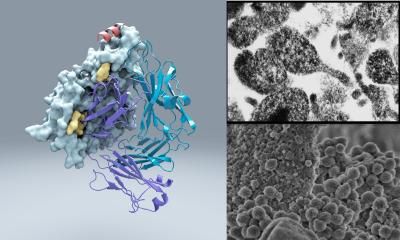Researchers optimizing progesterone for brain injury treatment
New approaches include adding vitamin D and using water-soluble analogues
As doctors begin to test progesterone for traumatic brain injury at sites across the country, researchers are looking ahead to optimizing the hormone's effectiveness. Two abstracts summarizing Emory research on progesterone are being presented at the 2009 Society for neuroscience (SFN) meeting in Chicago.
A multisite phase III clinical trial called ProTECT III will begin to evaluate progesterone's effectiveness for treating traumatic brain injury early next year. The trial grows out of years of research by Donald Stein, PhD, Asa G. Candler Professor of Emergency Medicine at Emory School of Medicine, demonstrating that progesterone can protect damaged brain tissue. Stein is director of the Department of Emergency Medicine's Brain Research Laboratory.
One of the SFN abstracts reports on progesterone analogues that are more water-soluble. This work comes from Stein and his colleagues in collaboration with the laboratory of Dennis Liotta, PhD, Emory professor of chemistry. Currently, the lack of water solubility limits delivery of progesterone, in that the hormone must be prepared hours ahead and cannot be kept at room temperature. Small chemical modifications may allow similar compounds with the same effects as progesterone to be given to patients closer to the time of injury. According to the results, two compounds similar to progesterone showed an equivalent ability to reduce brain swelling in an animal model of traumatic brain injury.
The second abstract describes evidence that adding vitamin D to progesterone enhances the hormone's effectiveness when applied to neurons under stress in the laboratory. Like progesterone, vitamin D is a steroid hormone that is inexpensive, has good safety properties and acts on many different biochemical pathways. The authors showed that a low amount of vitamin D boosted the ability of progesterone to protect neurons from excito-toxicity, a principal cause of brain injury and cell death.
Most read news
Topics
Organizations
Other news from the department science

Get the life science industry in your inbox
By submitting this form you agree that LUMITOS AG will send you the newsletter(s) selected above by email. Your data will not be passed on to third parties. Your data will be stored and processed in accordance with our data protection regulations. LUMITOS may contact you by email for the purpose of advertising or market and opinion surveys. You can revoke your consent at any time without giving reasons to LUMITOS AG, Ernst-Augustin-Str. 2, 12489 Berlin, Germany or by e-mail at revoke@lumitos.com with effect for the future. In addition, each email contains a link to unsubscribe from the corresponding newsletter.
Most read news
More news from our other portals
Last viewed contents

The ultimate decoy - Scientists find protein that helps bacteria misdirect immune system
Researchers rapidly turn bacteria into biotech factories
PBL InterferonSource founder, Sidney Pestka, MD, to receive 'Distinguished Service Award' from 'ISICR'
Fabry's_disease





















































